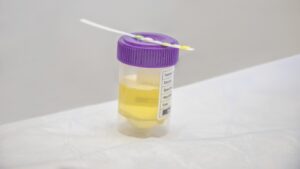Managing PMS (Premenstrual Syndrome) Symptoms and Knowing When to Visit Your Doctor
A regular menstruation cycle is an indicator of a woman’s overall health because it reflects the balance and harmony between different bodily functions and systems. Though this may be true, it is difficult for women to see it that way if they experience a myriad of pain and discomfort during their period (menstruation) on a monthly basis.
What is PMS?
Premenstrual Syndrome (more commonly known as PMS) refers to the behavioral, emotional, and physical symptoms or changes that women experience weeks leading up to the start of their menstrual period. The exact cause of PMS is not determined by researchers yet, but it is said that PMS may be affected by the fluctuations of hormone levels – estrogen and progesterone in particular – throughout a woman’s monthly cycle.
What are PMS symptoms?
Common physical symptoms of PMS include:
• Abdominal or pelvic cramping
• Headache or backache
• Diarrhea or constipation
• Tender, swollen, or sore breasts
• Bloating or gassiness
Common emotional or behavioral symptoms of PMS include:
• Changes in appetite
• Having food cravings
• Exhaustion
• Impatience and irritability
• Mood swings
• Trouble with concentration
• Anxiety
• Unexplained feelings of sadness
• Low sexual drive
Although not everyone experiences PMS symptoms, it is true that a menstruating woman will experience some form of PMS symptom at least once in her lifetime. The severity or mildness of the symptoms is different for everyone and will resolve a few days after getting her period. However, the only time a woman will NOT experience PMS symptoms anymore is when she stops having menstruation – naturally speaking, that is through menopause.
I’m old. Am I still going to experience PMS?
If you think that PMS symptoms are only experienced by younger women, you’re wrong. PMS symptoms could only get worse as you age, especially once you reach the transitional stage to menopause called perimenopause. Ever heard of perimenopause rage? Once you reach perimenopause, the dramatic changes in your hormone levels will greatly affect your feelings of anger, irritability, and impatience. It will only start to go away and resolve itself once your body has fully adjusted to the decline in estrogen levels.
How can I treat my symptoms?
As mentioned, PMS symptoms will naturally go away a few days after you get your period. However, you can try to manage or minimize the impact of these symptoms through lifestyle adjustments such as:
• Regular exercise to increase endorphins
• Eating a healthy and well-balanced diet
• Limiting sugar, salt, and caffeine-intake at least a week before your period starts
• Drinking lots of water
• Practicing proper hygiene
• Getting enough sleep, at least 7 hours every night
• Quit smoking
• Yoga and meditation
• Other stress-relieving activities
Over-the-counter pain relievers can help ease the physical symptoms. Other prescription medications such as oral contraceptive/birth control pills could be taken as well but only as indicated and prescribed by your doctor.
When should I go to the doctor?
If you are experiencing severe pain, bleeding, anger, sadness/depression, and other symptoms that disrupt your personal and professional life and interfere with your daily activities, immediately visit your doctor.
Pelvic Health & Intimate Wellness Center is equipped with the latest technology to help you manage your PMS symptoms. Book your consultation with Dr. Jennifer José to find out the course of treatment that works best for you.





